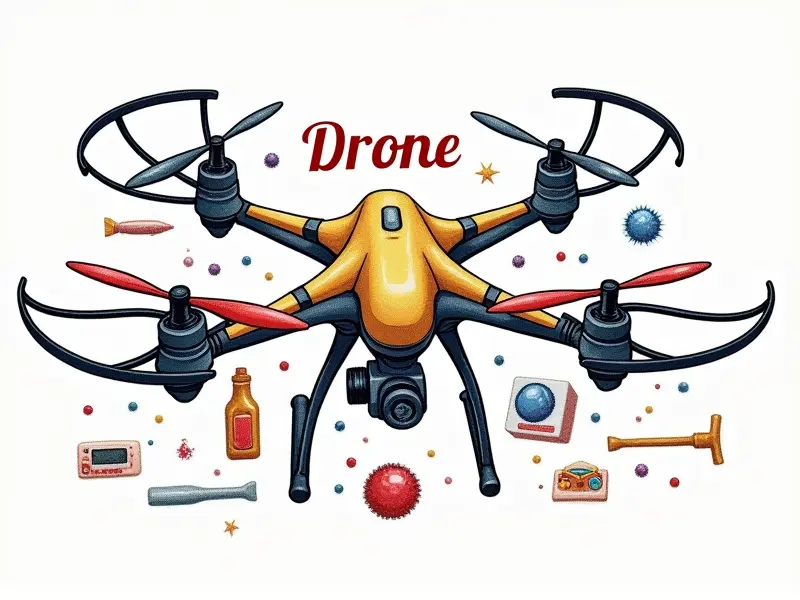Are Li-Po batteries safe in toys?

Lithium Polymer (Li-Po) batteries have revolutionized the world of remote control (RC) toys, providing unparalleled power and performance. However, their use raises concerns about safety due to potential risks such as overheating, fires, and explosions. This article delves into the nuances of Li-Po battery safety in various types of RC toys, including drones, planes, quadcopters, and racing gear.
Is It Safe to Use Li-Po Batteries in RCs?
The primary concern with using Li-Po batteries in RC toys is their potential for thermal runaway. This occurs when the battery cells overheat due to improper use or damage, leading to a chain reaction that can result in fire or explosion. While this risk exists, there are numerous steps you can take to ensure safe operation.
Li-Po Battery Safety in RC Drones & Planes
Drones and planes powered by Li-Po batteries demand meticulous care to prevent accidents. Proper handling, storage, and charging practices are essential for maintaining safety. Always use a charger specifically designed for Li-Po batteries and avoid overcharging or undercharging.
Steps to Ensure Safety
- Use Quality Chargers: Invest in reputable chargers that offer protection against overcharging.
- Monitor Temperature: Keep an eye on the battery temperature during charging and discharging. High temperatures indicate potential issues.
- Avoid Physical Damage: Protect the batteries from physical impacts, which can lead to internal damage and overheating.
Ensuring Safety with Li-Po Batteries in RC Quadcopters
Quadcopters are particularly susceptible to battery-related incidents due to their high power requirements. To ensure safety:
- Proper Sizing: Use batteries that match the quadcopter's specifications and avoid overloading.
- Battery Condition: Regularly inspect your Li-Po batteries for signs of wear or damage.
- Fuse Protection: Install fuses to prevent excessive current flow, which can lead to overheating.
Understanding Li-Po Battery Risks in RC Playthings
The risks associated with Li-Po batteries are well-documented. Overcharging, deep discharging, and physical damage can cause catastrophic failures. However, by adhering to best practices, these risks can be mitigated.
Common Risks
- Overheating: Can lead to thermal runaway and fire hazards.
- Deep Discharge: Can damage the battery's internal structure, reducing its lifespan and increasing the risk of failure.
- Physical Damage: Scratches or punctures can compromise the integrity of the battery casing.
Preventing Fires: Li-Po Batteries in RC Toys
Fires are a significant concern when dealing with Li-Po batteries. To prevent them:
- Proper Charging Environment: Charge batteries in a fireproof container or dedicated charging station.
- Use Balancers: Ensure that all cells within the battery are balanced to avoid uneven discharge.
- Avoid Overheating: Do not leave charged batteries unattended in hot environments.
Safe Handling of Li-Po Batteries for RCs
Proper handling is crucial to maintaining the safety and longevity of your Li-Po batteries. Always handle them with care, avoiding drops or impacts that could compromise their integrity.
Safety Tips
- Gloves: Use gloves when handling batteries to prevent accidental short circuits from metal objects.
- Storage Conditions: Store batteries in a cool, dry place away from flammable materials.
- Safe Transportation: Transport Li-Po batteries securely and separately from other items that could cause damage or spark.
Protecting Kids: Li-Po Battery Safety in RC Gear
Kids are particularly vulnerable to the risks associated with Li-Po batteries. Educating them about safe handling practices is crucial:
- Educational Resources: Provide children with age-appropriate information on battery safety.
- Supervision: Ensure that kids are supervised when using RC toys powered by Li-Po batteries.
- Safety Gear: Encourage the use of protective gear such as gloves and eye protection.
Avoiding Li-Po Hazards in RC Airplane Toys
RC airplanes require careful consideration when it comes to battery safety. The high speeds and extended flight times can exacerbate risks:
- Battery Capacity: Choose batteries with adequate capacity for the intended use.
- Regular Inspections: Conduct routine inspections of the battery pack before each flight.
- Avoid Overloading: Do not exceed the recommended power requirements to prevent overheating and failure.
Li-Po Battery Risks for FPV Racing Drones
First-person view (FPV) racing drones operate under extreme conditions, making them particularly susceptible to Li-Po battery hazards:
- Battery Management Systems (BMS): Utilize BMS to monitor and regulate voltage levels.
- Proper Ventilation: Ensure that the drone has adequate ventilation to dissipate heat generated during operation.
- Rapid Charging: Be cautious with rapid charging methods, which can increase the risk of overheating.
Secure Your RC Toy Investment with Safe Li-Po Batteries
Maintaining safety is paramount to protecting your investment in RC toys. By following best practices and investing in high-quality batteries and accessories, you can enjoy these exciting devices without compromising on safety.
Tips for Longevity
- Regular Maintenance: Perform regular maintenance checks on your Li-Po batteries to ensure they remain in optimal condition.
- Educate Yourself: Stay informed about the latest safety guidelines and best practices for handling Li-Po batteries.
- Quality Over Quantity: Opt for high-quality batteries over cheaper alternatives that may compromise safety.
Understanding the Dangers of Li-Po Batteries
The dangers associated with Li-Po batteries are real and require serious consideration. However, by adhering to established guidelines and best practices, you can significantly reduce these risks:
- Proper Storage: Store batteries in a cool, dry place away from flammable materials.
- Regular Inspection: Inspect batteries regularly for signs of damage or wear.
- Safe Charging: Charge batteries in a dedicated charging station with proper ventilation and fire protection measures.
By taking these precautions, you can enjoy the excitement of RC toys while minimizing potential hazards associated with Li-Po batteries.
In conclusion, maintaining safety when using Li-Po batteries for RC toys involves a combination of education, adherence to best practices, and proper maintenance. By staying vigilant and proactive, you can ensure that your experience remains both thrilling and safe.

